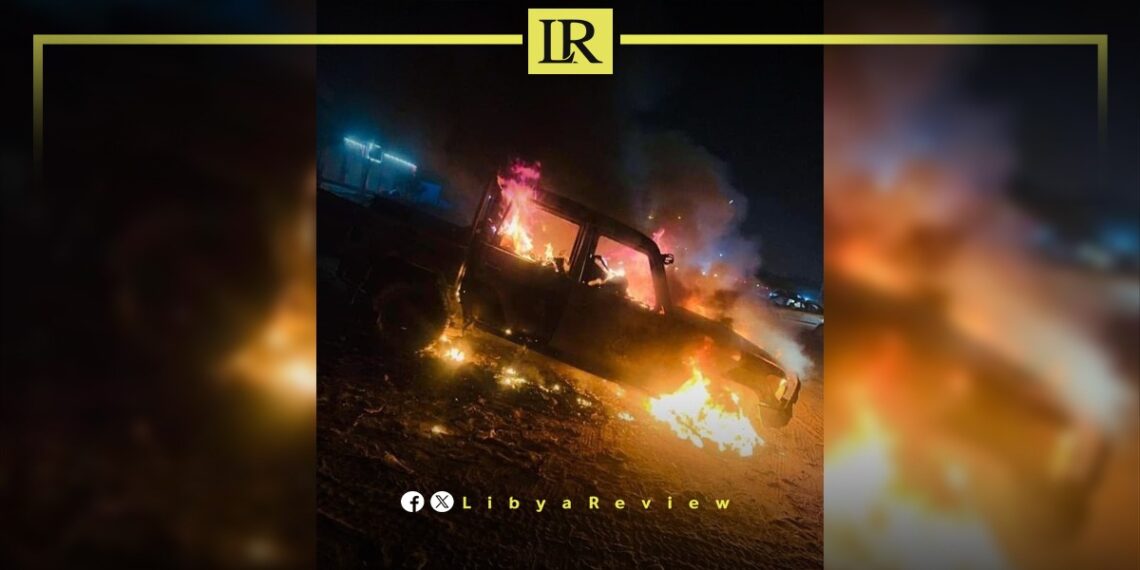Violent clashes broke out on Sunday between armed militias in the city of Al-Zawiya, western Libya, resulting in the death of Mutasim al-Shalfooh, a fighter from the al-Far Brigade affiliated with the Government of National Unity.Videos circulating on social media showed the exchange of gunfire, which was widely heard along the coastal road.
Local sources reported that the clashes involved forces loyal to the Government of National Unity and armed groups.
The violence resulted in the burning of an armoured vehicle on the coastal road following the arrest of Abdo al-Kabo, a militia leader involved in smuggling and other illicit activities.
The same sources confirmed that Abdo al-Kabo was released shortly after his arrest, which led to a cessation of hostilities.
Last month, violence in Al-Zawiya resulted in the death of one person, 11 injuries, and the evacuation of 20 families from the affected areas, according to the Libyan Red Crescent.
Al-Zawiya, located west of Tripoli, has long been a hotspot for conflict among rival militias. These groups, often with shifting allegiances, have taken advantage of the power vacuum created by the ongoing civil war in Libya. The GNU, established in March 2021, was intended to unify the country and lead it towards elections. However, it has struggled to exert control over the myriad of armed factions operating across Libya.
The failure to integrate these militias into a cohesive national force has been a significant obstacle to achieving lasting peace and stability. Many of these groups continue to operate with impunity, engaging in criminal activities such as smuggling, human trafficking, and extortion. This lawlessness undermines efforts to rebuild the state and restore order.
The GNU has faced criticism for its inability to manage these armed groups effectively. Tawfiq’s comments reflect a broader frustration with the government’s inaction in areas like Al-Zawiya, where local leaders have often had to step in to manage conflicts. The reliance on community leaders and councils of elders underscores the lack of effective governance and state presence in many parts of Libya.


